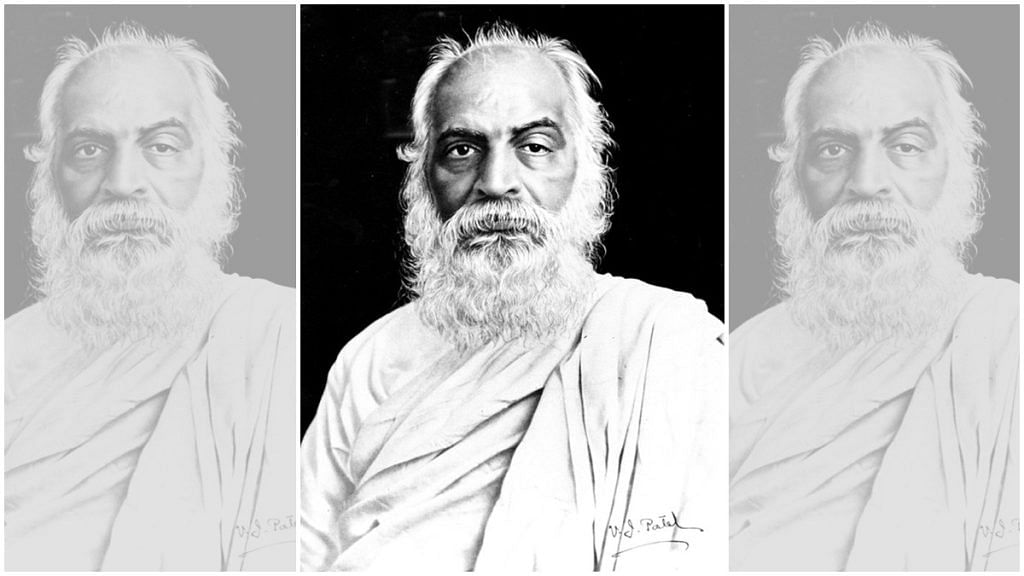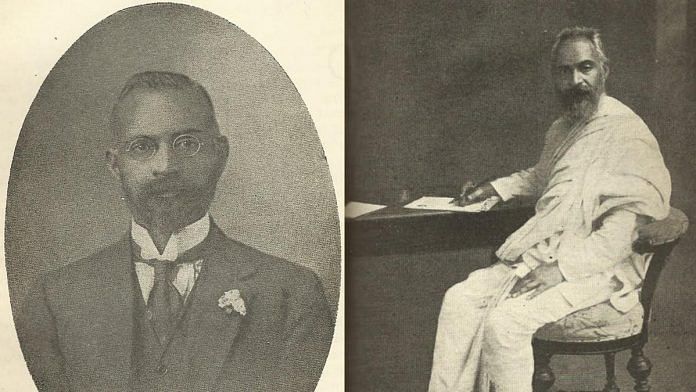Vithalbhai Patel, a liberal politician in early 20th century India, took a different path from his younger brother, Sardar Vallabhbhai Patel, and his mentor, MK Gandhi—although he occasionally collaborated with them. In 1925, he made history by becoming the first Indian to serve as the president of the Imperial Legislative Assembly, which was equivalent to Parliament in those days.
Vallabhbhai, who was younger by two years, was a dutiful sibling. He saved enough money to study law in England in 1905, but Vithalbhai expressed his desire to go first. Vallabhbhai then used his own savings to fund his elder brother’s education. Vithalbhai returned as a barrister in 1908.
Over time, the two brothers developed an understanding: Vithalbhai would devote his time to public service and Vallabhbhai would undertake the task of earning money to support both their families.
Also Read: Karsandas Mulji led & won the most famous fight against Gujarati Vaishnavite leaders in 1862
Climbing the political ladder
Driven by his belief in advocating for public interest by challenging the government, Vithalbhai aspired to become a member of the Legislative Council of the Bombay Province. To do so, he first needed to be elected to the local taluka board and then the district board.
But the selection process required the candidate to own some property—which Vithalbhai didn’t at the time. To help him win a seat on the table, a friend transferred a piece of land and house to Vithalbhai’s name. He went on to contest and win in the 1912 election.
Vithalbhai was an active participant in the debates and discussions that took place in the council. One of his most notable contributions was the introduction and passage of a Bill for compulsory and free elementary education in 1917. It was meant for all of the Bombay Presidency, but it was to begin within the limits of its Bombay municipal districts. Though the objectives of the Bill were never achieved due to insufficient funds and government inaction at the time, Vithalbhai’s statesmanship was widely applauded.
During his term in the Bombay Legislative Council, Vithalbhai was unanimously elected to the Imperial Legislative Assembly, filling a vacant seat from the Bombay Province. True to his nature, he asked 62 out of a total of 314 questions posed during the winter session in 1920.
Vithalbhai Patel stepped down from his position in the Imperial Legislative Assembly following the non-cooperation movement. Since the leaders of the movement didn’t object to participation in civic bodies, Vithalbhai contested and was elected to the Bombay Municipal Corporation in 1922 and established the Municipal Nationalist Party. In 1923, he ascended to the post of the president.
Moving away from Gandhi
Vithalbhai’s differences with Gandhi emerged after the latter suspended the non-cooperation movement following the Chauri Chaura incident of 1922, in which a confrontation between protesters and the police turned violent and resulted in the deaths of three civilians and 22 officers.
In 1923, Vithalbhai Patel became a founding member of the Swaraj Party, a group of “pro-changers” who advocated for entry into the legislative councils to participate in and question the government from within. This group was in contrast to the “no-changers”, led by Mahatma Gandhi and Vallabhbhai Patel, who maintained their stand to boycott the councils. Despite his differences with Gandhi, Vithalbhai Patel organised a civic address for the nationalist leader in 1924.
The same year, when Viceroy Lord Reading visited Bombay, Vithalbhai chose to boycott the celebrations. He wrote to the Bombay government that his absence was not intended as an act of disrespect toward the Viceroy. Rather, as Gordhanbhai Patel writes in his 1950 biography of Vithalbhai, the Gujarati leader felt it appropriate to refrain from attending the functions “in the view of the political malaise through which the country had been passing at that time”. Before he could be removed from the post by a no-confidence vote among the disgruntled members, Vithalbhai resigned.

However, he later decided to run for election again, and despite some opposition, he was reelected within a month. Even his opponents recognised him as one of the most capable and efficient presidents of the Bombay Municipal Corporation.
Vithalbhai went on to be elected as the president of the Imperial Legislative Assembly in both 1925 and 1927, completing a five-year tenure in this role. A strong advocate for the independence of the Assembly, he insisted it should operate with the same autonomy as the British parliament.
Asserting the supremacy of his role as the assembly president, he refused to vacate his chair and sit with other members during the Viceroy’s address to the House, which was the protocol at the time. Instead, he positioned his chair next to the Viceroy to underscore the significance of his role. Vithalbhai also freed the assembly from the control of the Legislative Department by setting up a separate and independent department for its governance. When Bhagat Singh threw a bomb into the assembly on 8 April 1929, Vithalbhai was present among all the members.
Also Read: Dinkar Mehta became sole communist mayor of Ahmedabad, beating Sardar Patel’s influence
A nationalist and reformist at heart
Despite holding office in the Imperial Legislative Assembly, Vithalbhai generously supported the 1928 Bardoli Satyagraha—a landmark protest against an increase in land tax in the Bardoli taluka of southern Gujarat. He resigned from his post following the famous Dandi March led by Gandhi in 1930—and was later arrested and jailed for going against the government.
Vithalbhai was also a social reformer at heart. In 1918, he presided over the Second Political Conference in Nadiad, Gujarat, which was held annually by the Gujarat Sabha, an organisation established in Ahmedabad in 1884 for various political activities. Gandhi was appointed its president in 1917. At the Nadiad conference, Vithalbhai advocated for Dalit representation and proposed reservation in the Assembly. Despite criticism from conservative members, he successfully organised a conference of Dalits.
When Baroda was hit by severe floods in 1927, Vithalbhai promptly joined the relief efforts.
Vithalbhai Patel spent his last days in Geneva under the care of the exiled leader Subhas Chandra Bose. After he died in 1933, his remains were brought back to India. His statue—a tribute to his legacy—stands at Chowpatty in Mumbai. The Gujarat Assembly was christened as Vithalbhai Patel Bhavan in 1982.
Despite his accomplishments throughout his lifetime, Vithalbhai is mostly remembered only as Sardar Vallabhbhai Patel’s elder brother.
Urvish Kothari is a senior columnist and writer based in Ahmedabad. He tweets @urvish2020. Views are personal.
(Edited by Asavari Singh)



